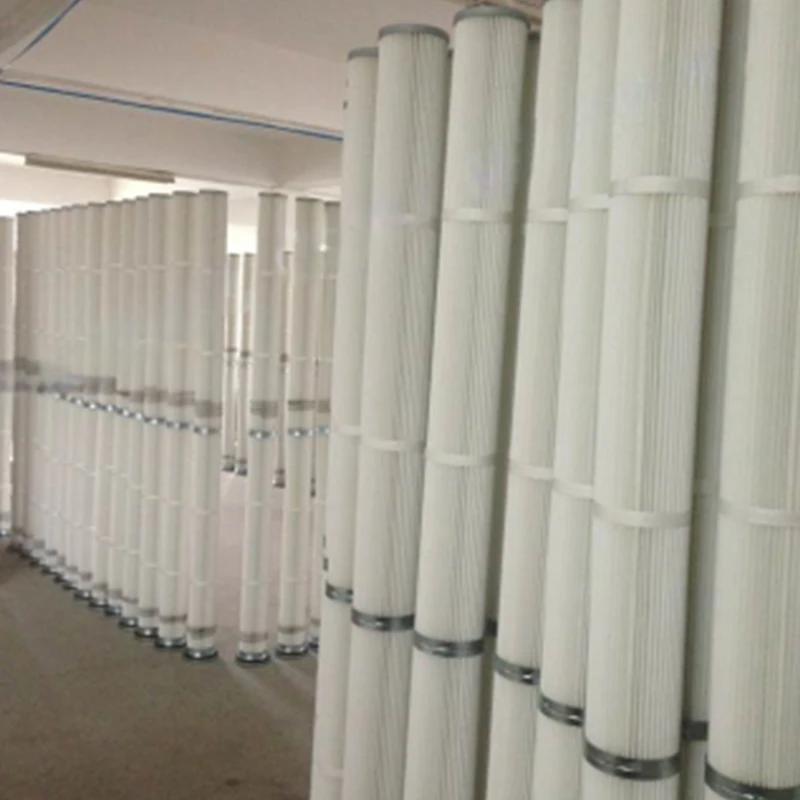 Tel:
+8615930870079
Tel:
+8615930870079
Ago . 20, 2024 19:16 Back to list
Durable Stainless Steel Filter Elements for Efficient Liquid Filtration Solutions
Stainless Steel Filter Elements A Comprehensive Overview
Stainless steel filter elements have gained significant traction in various industries due to their durability, high corrosion resistance, and effective filtration capabilities. These components are essential in applications ranging from water treatment and food processing to oil and gas production, demonstrating their versatility and effectiveness in demanding environments.
What is a Stainless Steel Filter Element?
A stainless steel filter element is a type of filtration device made from stainless steel, designed to remove contaminants from liquids or gases. The stainless steel material provides inherent qualities that make it suitable for filtration applications, such as high tensile strength, resistance to rust and corrosion, and the ability to withstand high temperatures. Common grades used in manufacturing these filter elements include 304 and 316 stainless steel, each offering different benefits depending on the application.
Key Benefits
1. Corrosion Resistance One of the standout features of stainless steel filter elements is their resistance to corrosion. This is especially important in industries like chemical processing or marine applications, where exposure to harsh environments can lead to rapid deterioration of less durable materials.
2. Mechanical Strength Stainless steel boasts impressive mechanical properties, allowing filter elements to maintain structural integrity under high pressure and temperature conditions. This is crucial in systems where shifts in operating conditions can occur frequently.
3. Reusability and Sustainability Unlike disposable filter media, stainless steel filters can be cleaned and reused multiple times, which not only reduces costs over time but also minimizes waste. This reusability aligns with modern sustainability goals, making stainless steel filters an eco-friendly choice.
4. Fine Filtration Stainless steel filter elements can be manufactured to achieve very fine filtration grades. This makes them suitable for applications that require the removal of small particulates and contaminants, ensuring the quality of the end product.
stainless steel filter element

Applications
Stainless steel filter elements find applications across a wide range of industries
- Oil and Gas In the oil and gas sector, these filters are used to remove impurities from crude oil and natural gas, ensuring that the end products are of high quality and safe for use. - Water Treatment For municipal and industrial water treatment processes, stainless steel filters effectively remove sediment, pollutants, and other unwanted materials from water supplies.
- Food and Beverage The food processing industry employs stainless steel filters to guarantee product purity by filtering out contaminants during production, thus complying with health and safety regulations.
- Pharmaceuticals In drug manufacturing, stainless steel filters are essential for maintaining sterile conditions by eliminating any particulates that could compromise product integrity.
Maintenance and Care
To ensure longevity and optimal performance of stainless steel filter elements, proper maintenance is crucial. Regular cleaning procedures should be implemented, tailored to the specific type of contaminants being filtered. Common methods include backwashing, ultrasonic cleaning, and chemical cleaning, depending on the degree of fouling.
Conclusion
In summary, stainless steel filter elements represent a reliable and efficient solution for various filtration challenges across multiple industries. Their unique properties, including corrosion resistance, mechanical strength, and sustainability, make them a preferred choice for engineers and manufacturers looking for long-term solutions. As industries continue to evolve and demand higher standards of purity and efficiency, the role of stainless steel filter elements will undoubtedly become increasingly significant in the quest for cleaner, safer products.
-
Types and Applications of Air Filtration CartridgesNewsJul.28,2025
-
The Role of Gas Turbine FiltersNewsJul.28,2025
-
Mastering Air Filter Cartridge UseNewsJul.28,2025
-
Advanced Turbine Filters for Modern Gas TurbinesNewsJul.28,2025
-
Cellulose Air Filter Cartridge Advantages in Dust FiltrationNewsJul.28,2025
-
Cellulose Filters for Air Particle ReductionNewsJul.28,2025

 Email:
Email:





